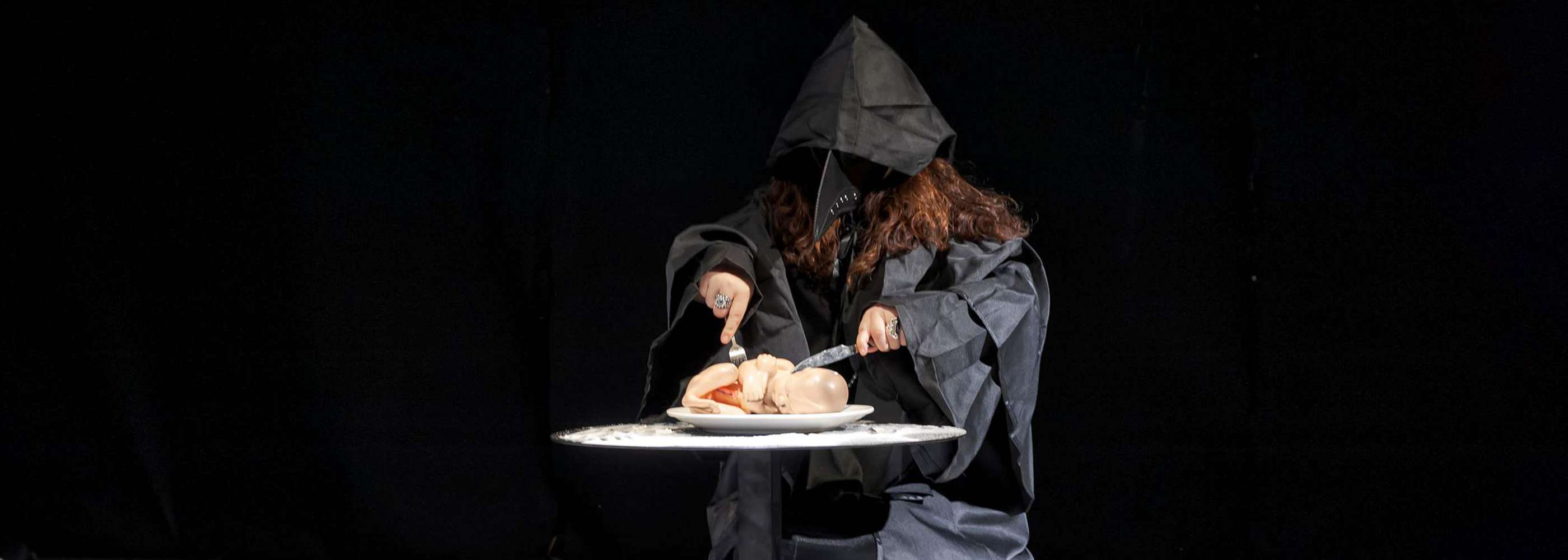

"The Iron Age" represents the darkest era. The gods continuously bring new troubles upon humanity, and the greatest troubles are brought by humanity itself. Fathers do not love their sons, sons resent their fathers, masters refuse to entertain their friends, and friends hate each other. The once happy and dignified goddesses who used to visit the earth now sadly wrap their beautiful bodies in white robes and return to the eternal realm of the gods. All that is left for humanity is misery, and this state of wretchedness seems endless.
This era appears to reflect the society we live in. The Iron Age is the final and most terrible of the five ages of humanity, characterized by mutual harm, even among siblings, and a world engulfed in chaos, disorder, desire, and death.
At the performance venue, I create a snowy night using salt and read Bataille's "The Holy Virgin and the Dead." It is an absurd story and the origin of many absurd erotic novels. It begins with a girl sitting on a plate filled with milk, leading to a journey of madness and filth.
Bataille's work has profoundly shaken me spiritually. It does not simply arouse sexual desires but reflects the loss of our "rational" father, which has led everyone to lose themselves and meaning in irrational madness. "I try to abandon any meaning in words, such as hope or despair. Yet, in moments of weariness, I think again that my life must ultimately have some meaning. As long as something is defined as desirable."
The story progresses from filthy debauchery to the killing of a priest, reaching a climax. To some extent, Bataille is allegorizing this era.
While reading about a man confessing his incestuous acts to God, I eat the bones of a bird on a plate and then consume the salt on the ground. I read with a mask on, and the salt melts in my mouth. The ground is filled with dead birds, and I become a birdman—a bird-headed figure reminiscent of the medieval plague doctors, an image derived from the experience of the COVID-19 pandemic. I consume the baby on the plate, but compassion makes me put down my knife and fork and pick up the baby. I then transform from a bird back into a human. I sprinkle salt on the baby’s body and take out a heart from the Golden Age, pouring black liquid over it. I cover my mouth with a black cloth and sprinkle the black liquid on my face with a spoon, forming a cross on my face.
Interestingly, the final cross echoes the cross nailed to the wall with black cloth on the first day of the Golden Age, and that golden heart has also been defiled.
The seven days of performances are independent yet internally connected. Each one relates to our era.
I aim to perform through writing poems, using imagery, situations, metaphors, and symbols to create a visual poem or allegory. I attempt to break certain boundaries or bridge certain rifts, combining theater, literature, performance, and installations.